
Since spring, I’ve been watching a myriad of pollinators zip tirelessly from the fruit blossoms, herbs, wild flowers and vegetables in my vegetable plot, providing me with their free pollination services. As a result, I’ve been enjoying bumper harvests.
Seeing such activity makes it hard to realise that a study earlier this year revealed that a third of British wild bees and hoverflies are in decline and, if current trends continue, some species will be lost from Britain altogether. Their traditional habitats of wild flower meadows have virtually disappeared, while climate change, toxic pesticides and disease all make for an unpredictable future for both pollinators and mankind, including our ability to grow food crops.
When we consider ‘pollinators’, most of us automatically think of the honeybee, which is actually not native to northern Europe. In the UK, approximately three-quarters of our native plant species require pollination by insects not just by social and solitary bees, but a range of insects, including hoverflies, moths, butterflies and beetles. As such, our plants have not evolved with honeybees as their main natural pollinators.
If you look closely at your flowers, you’ll quickly see that honeybees have plenty of company. Insect pollination is estimated to contribute more than £650 million a year to our economy, although this could be a huge underestimation if you consider that the valuation does not account for the pollination of fruit and vegetables in our own plots nor the labour costs involved to hand-pollinate commercially grown crops. It may sound far-fetched, but it’s already happening to fruit crops in China! It’s clear that our wild native pollinators play a vital role in our world. Let’s look at some of our native pollinators.
BUMBLEBEES
هذه القصة مأخوذة من طبعة December 2019 من Kitchen Garden.
ابدأ النسخة التجريبية المجانية من Magzter GOLD لمدة 7 أيام للوصول إلى آلاف القصص المتميزة المنسقة وأكثر من 9,000 مجلة وصحيفة.
بالفعل مشترك ? تسجيل الدخول
هذه القصة مأخوذة من طبعة December 2019 من Kitchen Garden.
ابدأ النسخة التجريبية المجانية من Magzter GOLD لمدة 7 أيام للوصول إلى آلاف القصص المتميزة المنسقة وأكثر من 9,000 مجلة وصحيفة.
بالفعل مشترك? تسجيل الدخول
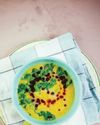
SEPTEMBER SPECIALS
This month, with sweetcorn, figs and blackberries on the menu, Anna Cairns Pettigrew is not only serving up something sweet and something savoury, but all things scrumptious
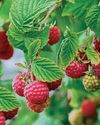
FLAVOURSOME FRUIT AUTUMN RASPBERRIES
September - is it late summer or the start of autumn? David Patch ponders the question and says whatever the season, it's time to harvest autumn raspberries
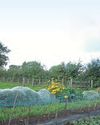
SOW GREEN THIS AUTUMN
Covering the soil with a green manure in winter offers many benefits and this is a good time to sow hardy types, says KG editor Steve Ott

A HISTORICAL HAVEN OF FRUIT AND FLOWERS
KG's Martin Fish takes time out from his own plot to visit a walled garden in Lincolnshire which has been home to the same family for more than 400 years
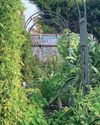
RESTORING THE BALANCE
The phrase regenerative gardening is often heard in gardening circles, but what is it? Can it help you to grow better veg? Ecologist Becky Searle thinks so, and tells us why
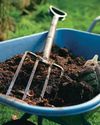
WASTE NOT, WANT NOT
Garden Organic's Anton Rosenfeld shares his expertise on using compost made from green bin collections with handy tips on getting the right consistency and quality
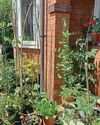
Celebrating Organic September!
In this special section we bring you four great features aimed at improving your crops and allowing nature to thrive
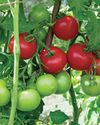
SEEING RED
Do your tomatoes have a habit of remaining stubbornly green? Or perhaps you're lucky to enjoy lots of lovely fruits - just all at once. Either way, Benedict Vanheems is here with some top tips to ripen and process the nation's favourite summer staple
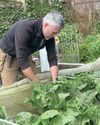
NEW KIDS ON THE BROCCOLI!
Rob Smith is talking broccoli this month with a review of the different types available and suggestions for some exciting new varieties to try
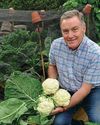
A NEW kitchen garden
Martin Fish is getting down to plenty of picking and planting on the garden veg plot, while Jill is rustling up something pepper-licking good!